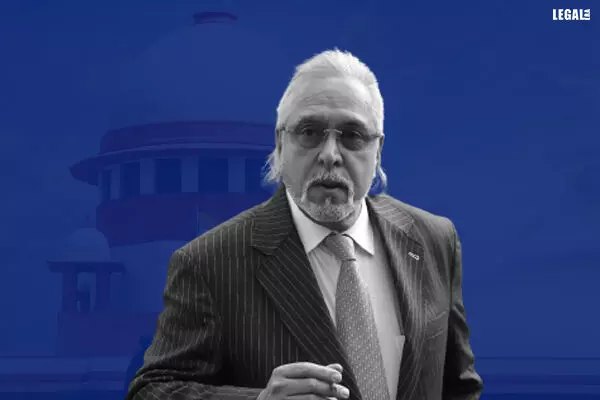- Home
- News
- Articles+
- Aerospace
- AI
- Agriculture
- Alternate Dispute Resolution
- Arbitration & Mediation
- Banking and Finance
- Bankruptcy
- Book Review
- Bribery & Corruption
- Commercial Litigation
- Competition Law
- Conference Reports
- Consumer Products
- Contract
- Corporate Governance
- Corporate Law
- Covid-19
- Cryptocurrency
- Cybersecurity
- Data Protection
- Defence
- Digital Economy
- E-commerce
- Employment Law
- Energy and Natural Resources
- Entertainment and Sports Law
- Environmental Law
- ESG
- FDI
- Food and Beverage
- Gaming
- Health Care
- IBC Diaries
- In Focus
- Inclusion & Diversity
- Insurance Law
- Intellectual Property
- International Law
- IP & Tech Era
- Know the Law
- Labour Laws
- Law & Policy and Regulation
- Litigation
- Litigation Funding
- Manufacturing
- Mergers & Acquisitions
- NFTs
- Privacy
- Private Equity
- Project Finance
- Real Estate
- Risk and Compliance
- Student Corner
- Take On Board
- Tax
- Technology Media and Telecom
- Tributes
- Viewpoint
- Zoom In
- Law Firms
- In-House
- Rankings
- E-Magazine
- Legal Era TV
- Events
- News
- Articles
- Aerospace
- AI
- Agriculture
- Alternate Dispute Resolution
- Arbitration & Mediation
- Banking and Finance
- Bankruptcy
- Book Review
- Bribery & Corruption
- Commercial Litigation
- Competition Law
- Conference Reports
- Consumer Products
- Contract
- Corporate Governance
- Corporate Law
- Covid-19
- Cryptocurrency
- Cybersecurity
- Data Protection
- Defence
- Digital Economy
- E-commerce
- Employment Law
- Energy and Natural Resources
- Entertainment and Sports Law
- Environmental Law
- ESG
- FDI
- Food and Beverage
- Gaming
- Health Care
- IBC Diaries
- In Focus
- Inclusion & Diversity
- Insurance Law
- Intellectual Property
- International Law
- IP & Tech Era
- Know the Law
- Labour Laws
- Law & Policy and Regulation
- Litigation
- Litigation Funding
- Manufacturing
- Mergers & Acquisitions
- NFTs
- Privacy
- Private Equity
- Project Finance
- Real Estate
- Risk and Compliance
- Student Corner
- Take On Board
- Tax
- Technology Media and Telecom
- Tributes
- Viewpoint
- Zoom In
- Law Firms
- In-House
- Rankings
- E-Magazine
- Legal Era TV
- Events
Supreme Court awards 4 months imprisonment to Vijay Mallya

Supreme Court awards 4 months imprisonment to Vijay Mallya
He was also ordered to deposit 40 million USD with interest within four weeks failing which his property would be attached
The Supreme Court has sentenced fugitive industrialist Vijay Mallya to four months imprisonment and a Rs.2,000 fine in the contempt of court case against him.
A three-judge bench of Justice Uday Umesh Lalit, Justice S Ravindra Bhat and Justice PS Narasimha directed the Ministry of Home Affairs to secure Mallya's presence to undergo the imposed imprisonment.
The court ruled, "In order to maintain the majesty of law, we must impose adequate punishment upon the contemnor and must also pass necessary directions so that the advantages secured by the contemnor or anyone claiming under him are set at naught and the amounts in question are available in the execution of the decrees passed in the concerned recovery proceedings."
The court also directed Mallya to deposit 40 million USD with interest within four weeks failing which his property would be attached.
The court said that the punishment for contempt was imposed as Mallya "never showed any remorse nor tendered any apology for his conduct." The fine amount is to be deposited with the Court's Legal Services Committee and the sentence would increase by two months if the same was not given on time.
The apex court added, "The Government of India, including the Ministry of External Affairs, and all other agencies or instrumentalities shall carry out the directions issued by the court with due diligence and utmost expediency. A compliance report shall thereafter be filed in the registry of this court."
The contempt case against the liquor baron is in relation to the bank loan default of over Rs.9,000 crores involving the now-defunct Kingfisher Airlines.
In 2017, the court held Mallya guilty of contempt of court for wilfully disobeying its orders in a petition filed by the Consortium of Creditors (COC) led by the State Bank of India (SBI). Mallya is alleged to have transferred funds into the accounts of other persons in violation of the court's orders. He also made 'vague and unclear' disclosures about his assets.
The banks had accused him of concealing facts and diverting the money to his son Siddharth and daughters Leanna and Tanya in 'flagrant violation' of the orders passed by the Karnataka High Court.
Early this year, a bench led by Justice UU Lalit observed, "We will list this matter for disposal in January. We cannot wait anymore now. Proceedings for extradition have attained finality and respondent 3 (Vijay Mallya) has exhausted all avenues of appeal in the United Kingdom."
The court had also appointed Senior Advocate Jaideep Gupta amicus curiae in the case.
In August 2020, the top court dismissed the review petition filed by Mallya against the 2017 judgment. He was also directed to be present before the court for the hearing on his sentencing, but he failed to do so, considering the fact that he had already left India.
Subsequently, the Ministry of External Affairs had told the Supreme Court that the extradition of Mallya had not been given effect due to some 'secret proceedings' initiated against him in the United Kingdom. Eventually, the court heard the matter without Mallya's presence.


